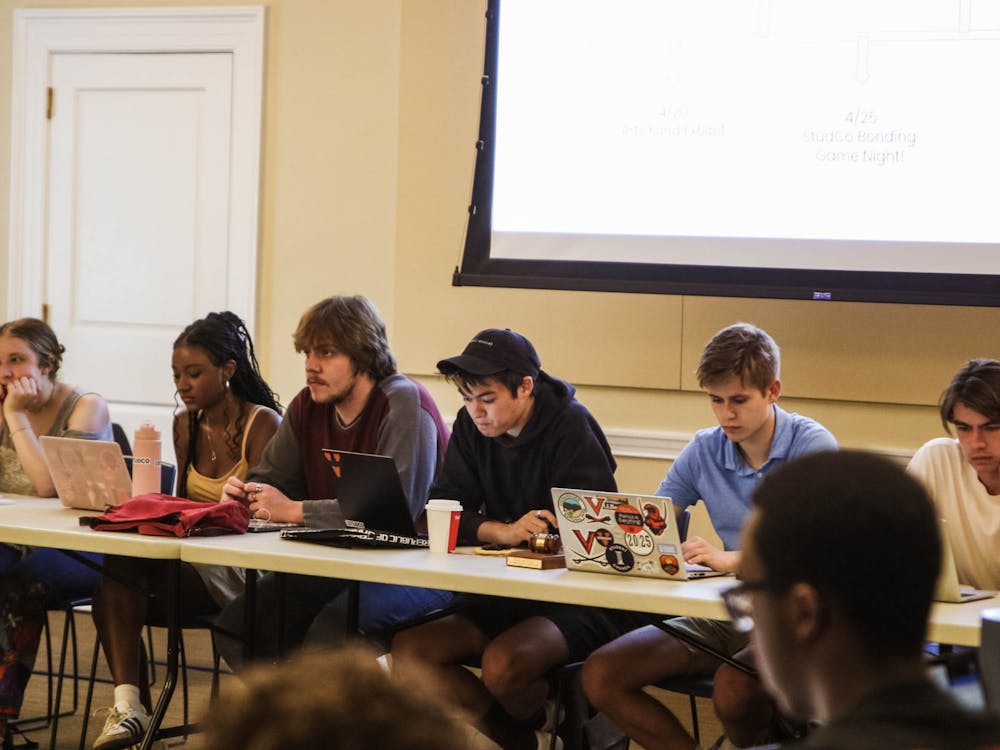Her trafficker handcuffed her to a door for two weeks. When Chong Kim escaped and ran into a shopping mall screaming for help, “people pulled their children away from me,” she told students gathered to hear her speak Wednesday evening in Clark Hall.
Sigma Psi Zeta sorority hosted the event, where Kim shared her experiences as a survivor of sex trafficking in the U.S., in honor of Domestic Violence Awareness month and as part of the sorority’s efforts to fight violence against women.
Kim, a U.S. citizen, was born in South Korea and came to the United States as a toddler. She was 19 and living in Dallas when, in 1994, a man convinced her to go with him to Florida.
Abused as a child, Kim said she was more vulnerable to his advances. “I had low self-esteem,” she said. Her kidnapper posed as her boyfriend for two weeks and developed a relationship with her before selling her to traffickers.
After no one rushed to help her in the mall, her kidnapper told her: “Nobody wants you. You are damaged goods,” so she stopped fighting.
Drugged and beaten frequently by her captors, Kim suffered three years in the sex trade. Her traffickers made her pretend she was a Korean immigrant and minor, because customers, or “Johns,” preferred “fresh meat,” she said.
“I felt like I was meat in a grocery store, the way he would examine me,” Kim said. She said she was shocked to learn her “Johns” were often respected men in society, including lawyers, local officials and state employees. To save herself, Kim “ranked up,” eventually running her own escort service as a madam in Las Vegas.
“[It was] the only way I could get out,” she said. “If I walked away, I would be dead.”
One day, after her trafficker locked her inside a room in a casino, Kim crawled into the air vents. Once outside, she stole a man’s car by knocking him unconscious with the heel of her shoe and escaped.
Kim has since become an advocate for other survivors. “To this day, I am forever reminded of what they have done to me,” she said. Ever since a trafficker broke her shoulder during a beating, Kim cannot lift her right arm above her head.
Sex trafficking is a pervasive international problem, Women’s Center Director Sharon Davie said.
“Many young people are lured to ‘good jobs’ in other countries, seeking a dream — only to find out that they are enslaved,” Davies said in an email.
Kim emphasized the reality of sex trafficking in the United States. She said people think trafficking only happens internationally, but she is living proof trafficking is a domestic problem. “We need to let our government know that it does happen here,” Kim said.
Kim said protection for trafficking victims in the United States is limited compared to policies in other countries. Kim gave an example of two rescued victims, one from Sweden and one from Virginia.
The girl from Sweden will “get amnesty, medical care, legal representation,” Kim said. “Guess what the other girl gets? Handcuffed and sent to juvie as a child prostitute.”
Revision of the Trafficking Victim Protection Act, an act Congress passed in 2000 to protect persons in the United States illegally who are victims of human trafficking, could provide a solution, Kim said. Until laws protect children, as well, traffickers in the United Sates will not be held accountable because victims do not have complete amnesty, she said.
Kim is a co-writer of “Eden,” a film based on her experiences. It premiered in March 2012 at the SXSW film festival in Austin, Tex.





